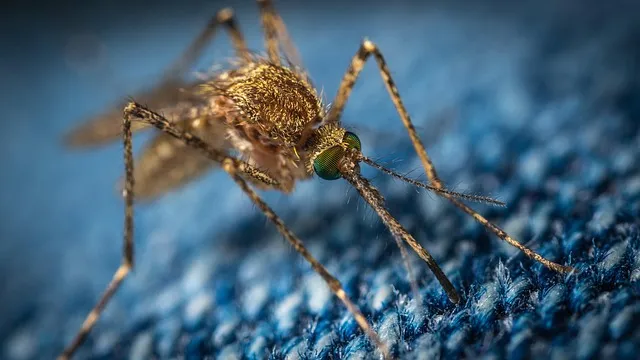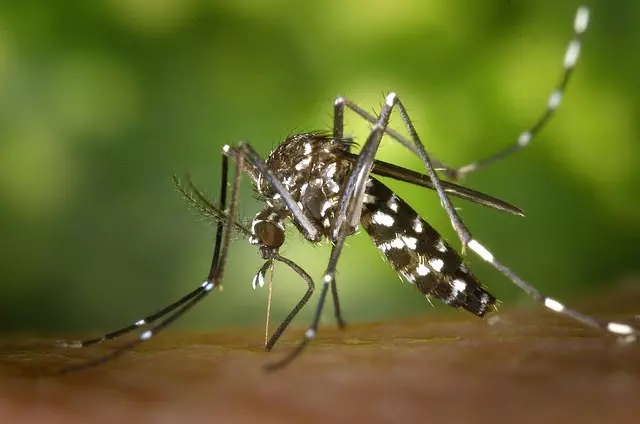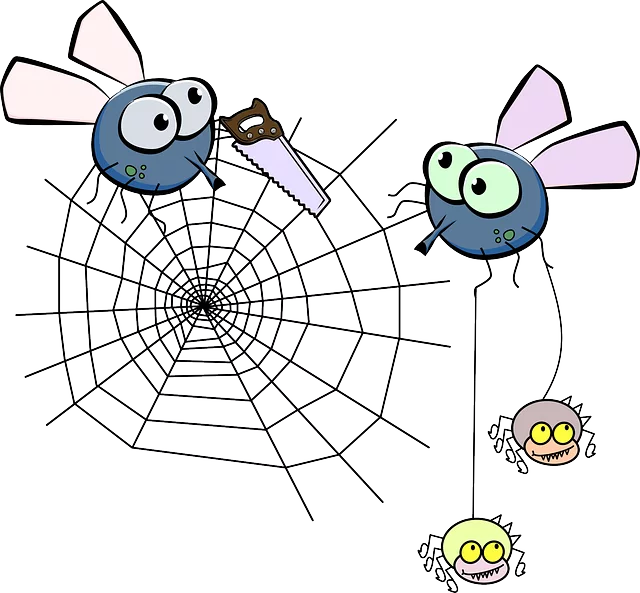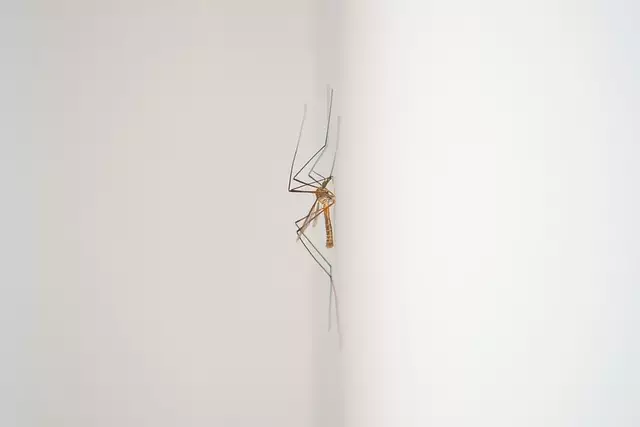Mosquito fogging is a professional, effective mosquito control method that combines precise ultra-low volume (ULV) insecticide application with breeding ground identification and ongoing prevention strategies. Ideal for large outdoor spaces, events, and residential areas, it disrupts mosquitoes' life cycle across resting, feeding, and mating stages. Choosing the right service involves selecting a licensed, eco-friendly provider with advanced equipment and skills tailored to your needs. Safety measures, including protective gear and temporary indoor stay after fogging, are crucial. Mosquito fogging is vital for public health in regions with mosquito-borne diseases and dense vegetation, requiring regular treatment during peak seasons. Costs vary based on area size, frequency, and chemical choices, while ongoing maintenance like eliminating standing water is essential for continuous protection.
Looking for effective mosquito control solutions? Mosquito fogging services have emerged as a powerful tool in combating these pesky insects. This comprehensive guide explores the ins and outs of professional mosquito fogging, delving into its science, benefits, and safety measures.
From understanding the method to choosing the right company and seasonal considerations, you’ll discover how this service can transform outdoor spaces. Learn about maintenance and follow-up care to ensure long-lasting protection against mosquito populations.
Understanding Mosquito Fogging: A Comprehensive Overview

Mosquito fogging is a professional mosquito control method that involves the strategic deployment of fine mist or fog to eliminate mosquitoes and their larvae from a specific area. This process targets both adult mosquitoes resting in trees, bushes, or other structures, as well as their immature stages found in standing water sources like buckets, containers, or stagnant ponds. The fogging solution typically contains insecticides or organic repellents that are safe for the environment when used properly.
This method is especially useful for large outdoor spaces, events, or residential areas where mosquitoes have become a significant nuisance. Professionals skilled in mosquito fogging understand the importance of identifying and treating breeding grounds to break the mosquito life cycle effectively. By combining targeted fogging with ongoing prevention strategies, such as eliminating standing water and maintaining proper yard hygiene, homeowners and businesses can achieve lasting relief from these pesky insects, enhancing outdoor comfort and quality of life.
The Science Behind Mosquito Control through Fogging

Mosquito fogging services employ a precise and effective method for mosquito control, leveraging scientific principles to eliminate these pesky vectors of disease. The process involves the strategic application of ultra-low volume (ULV) insecticides via fogging machines. These machines emit fine mist droplets containing the active ingredient, which quickly settles on surfaces, including standing water and vegetative areas where mosquitoes breed. The ULV method ensures minimal environmental impact, as the insecticides are designed to target only insects, with low risk to humans, pets, and beneficial wildlife.
The science behind mosquito fogging is rooted in disrupting the mosquito life cycle. By targeting resting and feeding stages, the insecticides inhibit mating, egg laying, and blood feeding, thereby reducing mosquito populations significantly. This method is particularly useful in areas with high mosquito activity or where other control measures have been ineffective. Fogging can provide rapid relief from mosquito bites and the transmission of diseases like Zika, West Nile, and malaria, making it a valuable tool for public health initiatives and outdoor events.
Benefits of Professional Mosquito Fogging Services

Professional mosquito fogging services offer a multitude of benefits for homeowners and businesses alike, providing an effective solution for persistent mosquito problems. One of the key advantages is the immediate relief it offers from these pesky insects. Trained professionals employ advanced equipment to precisely deliver insecticides, ensuring targeted treatment that covers hard-to-reach areas, like foliage and dense vegetation. This method is particularly beneficial for large outdoor spaces where traditional methods may be less efficient.
Moreover, these services contribute to improved health and safety by significantly reducing mosquito populations, which are known carriers of various diseases. By eliminating or drastically decreasing mosquitoes in treated areas, professional fogging can create a safer environment, providing peace of mind, especially during peak mosquito seasons. Regular mosquito control measures also benefit local ecosystems as it helps maintain balance without harming beneficial insects.
Choosing the Right Mosquito Fogging Company

When considering mosquito fogging services, selecting the right company is paramount for effective mosquito control. Look for a reputable firm with a proven track record and licensed professionals who utilize environmentally friendly methods. Ensure they have the necessary equipment and expertise to handle your specific needs, whether it’s a one-time event or regular maintenance.
Research their reputation, read customer reviews, and inquire about the products used. A good mosquito fogging company should offer safe, targeted treatments, ensuring minimal impact on your surroundings and health while providing lasting relief from these pesky insects.
Safety Considerations During and After Fogging Treatments

When it comes to mosquito control, fogging treatments have emerged as a popular and effective method. However, ensuring safety during and after these applications is paramount. Before and during the process, professionals should wear protective gear, including long sleeves, gloves, and respirators, to shield against potential chemical exposure. It’s crucial to follow all safety protocols and instructions provided by certified applicators to minimize risks.
Post-fogging, proper ventilation is essential to ensure any residual chemicals dissipate quickly. Residents are advised to stay indoors for a short period while the treatment takes effect. Afterwards, thorough handwashing with soap and water is recommended to eliminate any trace of the insecticides used. This simple step can help prevent potential skin irritation or allergic reactions, ensuring everyone’s well-being in the post-fogging environment.
Common Places and Situations That Require Mosquito Fogging

Mosquito fogging services are essential for effective mosquito control in various environments and settings where these pesky insects tend to proliferate. Common places that require regular mosquito fogging include residential areas, parks, gardens, and outdoor event spaces. During the warmer months, mosquitos breed rapidly in standing water sources like buckets, flower pots, and stagnant ponds, making it crucial to target these spots during fogging treatments.
Public health concerns also drive the need for mosquito fogging, especially in regions with high rates of mosquito-borne diseases. Areas near bodies of water, such as lakes or rivers, are particularly vulnerable to mosquito infestations that can spread diseases like West Nile virus or Zika. In addition, residential neighborhoods with dense vegetation provide ideal breeding grounds and hiding spots for mosquitos, necessitating regular fogging to maintain a comfortable outdoor living environment.
Seasonal Variations in Mosquito Populations and Fogging Needs

Mosquito populations are highly influenced by seasonal changes, which in turn impact the need for mosquito fogging services. During warmer months, mosquitoes breed and thrive due to increased rainfall and higher temperatures, leading to larger populations. This peak season demands more frequent mosquito control measures, such as fogging, to keep their numbers under check. Conversely, colder seasons see a significant drop in mosquito activity, making it less crucial to employ these methods regularly.
Understanding these seasonal variations is key for effective mosquito control. Fogging services can be optimized by scheduling treatments during peak periods to ensure maximum impact. By adapting their strategies according to the time of year, service providers can offer tailored solutions, enhancing overall efficiency and contributing to a more comfortable environment for residents.
Cost Analysis: Evaluating the Expense of Mosquito Fogging Services

Mosquito fogging services, while effective for mosquito control, come at a cost. The expense can vary widely depending on several factors including the size of the area to be treated, the frequency of treatments required, and the specific chemicals or equipment used. It’s important to get quotes from multiple service providers to understand the full range of prices in your area.
When evaluating the cost, consider not just the upfront fee for a single treatment but also ongoing expenses for regular mosquito control. Some services offer monthly packages which can be more economical in the long run. Additionally, look into the environmental impact and safety considerations of different methods to ensure you’re making an informed decision that balances effectiveness, cost, and sustainability.
Maintenance and Follow-up after Mosquito Fogging

After a mosquito fogging service, proper maintenance and follow-up are essential for effective mosquito control. It’s crucial to keep your property free from standing water, as this is where mosquitoes breed. Regularly inspect and empty containers like flower pots, buckets, and birdbaths to prevent new mosquitoes from emerging.
Additionally, maintaining a clean and trimmed landscape can hinder mosquito habitats. Keep grass mowed and shrubbery pruned to reduce areas where mosquitoes can rest and reproduce. Following up with periodic fogging treatments as needed, especially during peak mosquito season, ensures a continuous barrier against these pests.
